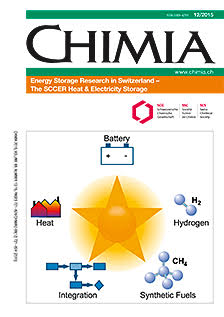Stress-induced Ageing of Lithium-Ion Batteries
DOI:
https://doi.org/10.2533/chimia.2015.737Keywords:
Electrochemical impedance spectroscopy, Li-ion batteries, Microscopy, Stress cyclesAbstract
Lithium-ion batteries are well established for use in portable consumer products and are increasingly used in high power electro-mobility and photovoltaic storage applications. In hybrid and plug-in electric vehicles degradation and useful lifetime at standard operation conditions are critical parameters in addition to performance and safety. Here stress-induced ageing of commercially available high power battery cells of the type A123 AHR32113M1 Ultra-B, consisting of a LiFePO4 cathode and a graphite anode have been investigated. A usually accepted capacity loss for electric vehicles of 20% was reached after 8560 stress profiles corresponding to a driving distance of almost 200'000 km. Cycling with a stress profile applying constant power corresponding to the average power and energy of a full stress profile and starting at 60% state of charge showed a much faster capacity loss. Electric impedance measurements show the dependence of the capacity loss and constant phase element at low frequency, indicating Li-ion diffusion blocking in the cathode. Microscopic analysis of anode, separator, and cathode, shows defect formation in bulk material and at interfaces.Downloads
Published
2015-12-16
Issue
Section
Scientific Articles
License
Copyright (c) 2015 Swiss Chemical Society

This work is licensed under a Creative Commons Attribution-NonCommercial 4.0 International License.
How to Cite
[1]
Chimia 2015, 69, 737, DOI: 10.2533/chimia.2015.737.







